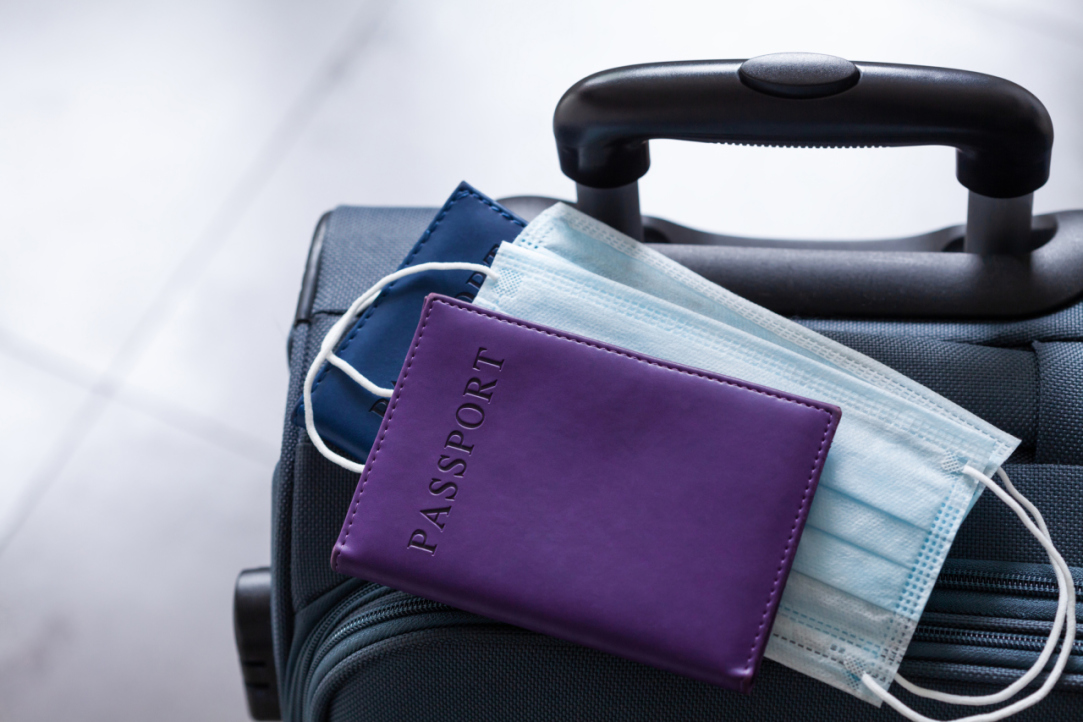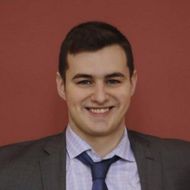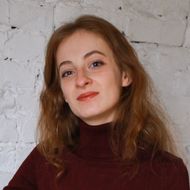With Love to Saint Petersburg: How International Students Study Remotely
When HSE University — Saint Petersburg switched to distance learning, our international students had to make a difficult decision: stay in Russia or return home. The HSE St. Petersburg Editorial Office found out how the students deal with self-isolation in the dormitory and at home, what has changed in their educational process and what they do in their spare time.


Akmal Tadzhibaev, third-year student of 'Political Science and World Politics'
Tashkent, Uzbekistan
After switching to distance learning, I stayed in St. Petersburg. There are several reasons why I decided to do so. First, in January I came back to St. Petersburg from China where I was on academic mobility programme. I did not want to leave the city for another six months and planned to spend the summer in Saint Petersburg. Second, it is more convenient for me to study from the dormitory rather than from home. The latter is very relaxing. In addition, there is a two-hour time difference between Tashkent and Saint Petersburg, and I would have to adjust to it.
My parents and friends fully supported my choice. Of course, I am worried about them, and they are worried about me, so we often call each other. I do not see any difficulties I could face here. HSE supported all its students: both those who decided to go back home and those who stayed in St Petersburg.
Switching to distant learning has not affected my studies and it was quite smooth. However, now it is more difficult to allocate my time. I like having my day structured, but now every day is the same, and sometimes I cannot understand what is going on. At first, it seemed to me that I had more free time as I did not spend it on my way to the university and back, but I feel that studying itself takes more time now.
I believe HSE has successfully managed to switch to distance learning. There are webinars, classes, online events, so university life is going on, although a learning mode is new for all of us. It seems to me that the university administration has done a great job in a very short period of time to ensure that the current situation does not affect the quality of our education.
The funny thing is that for a long time I could not find where the button 'Raise Hand' is located in Zoom, and I kept raising my hand as usual. Later my friend texted me that it worked a bit differently. More than anything I miss live communication, and the first thing I want to do after my self-isolation is over is to meet my friends.

Florence Baeriswyl, third-year student of UCL in London
Switzerland
I am a student of 'European Social and Political Studies' programme at University College London. In March, I came to HSE University — Saint Petersburg for a semester programme 'Russian Language and Culture'. I decided to return to Switzerland because I felt I would be safer and better taken care of in my family home and native country. I think it was probably the most difficult in an emotional sense. Since I was ill the first two weeks in St Petersburg, I had only just really gotten used to my day-to-day, and I was really loving it. My flat and flatmate were amazing, I started taking music lessons and playing in bars etc. Leaving all of that and packing up the entire flat in a day was really difficult. It felt like we were robbed of a once-in-a-lifetime experience. The actual trip home was fine.
I think overall the distance learning is running much more smoothly than I anticipated, both in terms of the lesson content and the technical aspects. Of course, it requires a lot more discipline to get yourself to focus during the lesson. I think the biggest difficulty is the fact that you are staring at a screen for 4 hours. It is exhausting and I always have a headache afterwards. My time difference to St. Petersburg is only an hour, so I have not had any problems with that.
On a day when I have classes, I get up at 8, do some yoga with my mom (and sometimes my dad), and then have my classes from 9:30 to 14:30. After that, I play the saxophone, watch series, cook, garden etc., depending on my mood. Sometimes I work on my dissertation.
I think everything in terms of distance learning was very well done. It was difficult at first to adapt back to a schedule, especially with the amount of anxiety and uncertainty in the news. Given the circumstances, we have all adapted well to the new format, although there are always some minor technical issues. It is always great when somebody’s cat walks into the frame – it happens quite frequently because it seems we all have cats. I really miss actual human contact. I also really liked the view from our classrooms, and St. Petersburg, of course, although I do not know if that counts as an ‘aspect’ of our studies.
It is difficult to say what I would do first when things go back to normal. I would love to go back to Russia before the summer is over, even if it is just for tourism, but so far there is no way to tell when the borders will reopen. But who even knows how this ‘normal’ will be (or when)? There is no way to tell.

Alfredo Leone Roselli, third-year student of 'International Business and Management Studies' programme
New York, the USA
I have decided to stay in Russia because I need to be present for classes and the time zone of my city did not make it possible to continue studying online. My friends and family seemed to be on board because it seems Russia has a much better grasp of it all than the rest of the world.
It is nice that the teachers started using LMS and the information is not only accessible but also centralized now. It is difficult as each teacher decides their own medium of video communication and there are often intricates about alternating media. It seems the study office is overwhelmed with all the logistical complications of this switch and tends to forget to respond to my emails.
Every day I make sure to wake up early, eat a healthy breakfast, get some exercise then start the video clacketing. Each night without fail I slap together a New York-style pizza in isolation, so each taste can transport me back to my hometown.
Overall, I would like to give a shoutout to the hard work of all our professors. I can only imagine how daunting it must be to digitize syllabi. I think there are still many unanswered questions in our program, but I hope with time they will update us all. In terms of adaption, we have learned to exchange pleasantries in the void space of video calls. Of course, there are some funny situations during classes. I think the best of all is when relatives tend to pop on-screen or when the camera drifts its focus to the furry critters that finally get our attention during the day. I miss the small talk and cappuccinos at HSE between classes. First thing I plan to do is to go for long walks and enjoy the sunlight: nowadays, a rarity to us all.

Santa Merika, third-year student of 'International Business and Management Studies' programme
Riga, Latvia
Switching to an online mode was expected, but no one knew exactly when it would happen. I remember that on Monday, March 16, I went to university and even a gym. In the evening of the same day, I received an e-mail with information about switching to distance learning. The first thing I thought was: 'Great, I do not have to get up so early'.
Then everything happened quickly: the international flights were cancelled, state borders were closed, the self-isolation regime was introduced. I decided to stay in Saint Petersburg because I need to get a new visa. Every year I have to update my visa in Russia, and my current one expires in June.
My parents were upset to know I would stay in St. Petersburg because I planned to go home for a week in late March. Perhaps, after I get a visa and strict restrictions are removed, I will still be able to get home. Now it is relatively calm in Latvia, the number of confirmed cases of the infection is not that high.
My usual day on a distant mode is similar to the previous ones. I wake up in the afternoon, do my homework, cook. Now I can use my commute time for myself and my hobbies, so I have more spare time, and I go to bed at 3 or 4 am. In the beginning, I went crazy about spending all the time in the dormitory, but I got used to it in a couple of weeks.
To be honest, I do not like online learning as there is more homework to do, but not enough live dialogue with my friends. HSE switched to an online mode promptly, and all the lecturers successfully manage online teaching, but some difficulties occur anyway. For example, it is impossible to hold a conference for 200 students in Zoom because of participants limit. To overcome this problem our lecturer came up with the idea to use Instagram to give a lecture to more students when it is required.
Recently, I faced one more problem. All students in my group had to take a 40-minute test on LMS. On finishing it, I clicked on a 'Complete test' button, and at the same time, my wi-fi connection was interrupted. In a few seconds, the page was updated, but all my answers were reset. The test started from the beginning, but no time left, I had only 6 minutes. Unfortunately, I was not able to take the test again. I have not solved the problem with the assessment yet, but I think that the lecturer will consider my situation.

Yaroslav Yasko, third-year student of 'Public Policy and Analytics' programme
Chisinau, Moldova
For me, as for people around the world, the pandemic has become a great challenge. My team is actively engaged in extracurricular activities: we organize a TEDx conference and HSE St. Petersburg Media forum. We postponed some of the planned events to the autumn while some of them were transferred online, which was not easy at all.
I had been thinking about whether to leave Saint Petersburg during the epidemic — after all, I feel at home in this city more than in my hometown. Moreover, it seemed to me it would be safer in Russia as its healthcare system is more developed. However, the coronavirus began to spread faster than I thought, and I decided to go to my parents in Moldova.
Then I faced a problem: passenger air traffic had already been suspended, and the borders of Ukraine were closed to foreigners. I called the embassy, filled out a form for the repatriation of citizens, wrote numerous petitions to the Moldovan government, and eventually received a quota for a charter flight from Moscow on April 11.
My trip to Moscow was special: I was travelling on an empty train wearing two respirators and two pairs of medical gloves. At Vnukovo airport, nothing worked at all, except for one ticket office and a check-in desk. At the entrance to any mean of public transport, they measured my temperature, border guards and flight attendants were working in protective suits. In Moldova, I was asked to buy medical insurance and was obliged to comply with self-isolation requirements. I also took a COVID-19 test myself — it was negative.
Since March 17, all our classes have switched to an online mode, like the rest of our life. Courses on Coursera have been added to the curriculum, and I like this innovation. It is more convenient to listen to online lectures because you can pause it whenever you want, write down some important information and then go back to the moment where you stopped. In this regard, I support the ideas of our rector, Dr Yaroslav Kuzminov, who is advocating a new digital approach to higher education. Definitely there are some drawbacks — some lecturers have difficulties with adjusting to a new format, especially it is challenging for guest lecturers who work for other universities or organizations but also give lectures at HSE.
Of course, I miss personal meetings with our lecturers, other students, and university staff. I miss extracurricular activities and the bright sofas in HSE buildings, and most of all, I miss my friends. Now we meet only during online conferences, and we will only be able to see each other in person in the middle or late summer (if the borders are open).
As soon as the situation in the world normalizes and I return to St. Petersburg, I will organize a meeting with my classmates — after all, as practice shows, relationships built at the University remain for life. Besides, I sincerely hope that we will be able to hold educational and extracurricular events planned for spring 2020 in the autumn — after all, our team has been working on them for so long!

Florence Ibuowo Olubunmi, third-year student of ‘Political Science and World Politics' programme
Nigeria
When the university switched to an online mode, I decided to stay back in Russia, because I thought things were going to go back to normal soon. My mother supported my decision because our country was already exposed to the virus, and she did not want me to risk getting exposed to the virus during my trip back home. Overall, I love distance learning. Although I move less these days, I gain more academically.
My regular daily schedule has not changed a lot. I wake up at my usual time and still go to bed quite late, but now I have extra time to watch some movies and chat with my family and friends through social media. Actually, I have no complaints about a distance learning mode, and I think the professors and students have been able to adapt well judging from our first online lesson till date. Sometimes we face some funny situations during online classes. Once, my Internet connection totally failed thus making me miss more than half of the class, so I had to reschedule a short private lesson with the professor after the class.
Most of all, I miss the classroom kind of learning system and seeing my course mates. Also, I surely do miss Granola’s chocolate cinnamon roll on campus. After things go back to normal I plan on visiting a lot of places because I am usually the type of person who loves staying indoors and have not really seen the city, so right after things get back to normal I will explore the city and get myself some tasty chocolate-coated cinnamon roll.

